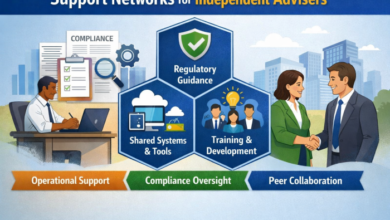Are You Personally Liable for Ltd Company Debts?

If you’re running a business, one of the big questions that might cross your mind is whether your personal finances are safe if things go wrong. Many directors assume that setting up a limited company automatically protects them, but there are circumstances where that safety net doesn’t cover everything. It’s why people often ask: “If my ltd company goes bust will I lose my house?”
The short answer is that the limited company structure provides strong protection in most situations. However, there are important exceptions. Certain decisions, like signing a personal guarantee, trading when you know insolvency is unavoidable, or using company funds in the wrong way, can put you personally on the hook.
By understanding these risks and how liability works, you can protect your personal assets, meet your responsibilities as a director, and still run your business with confidence.
Understanding Limited Liability
One of the biggest advantages of running a limited company is the concept of “limited liability.” Put simply, the company is treated as a separate legal entity from you, the director. That means if the business struggles or fails, you usually won’t have to cover company debts out of your own pocket. The money you risk is limited to what you’ve invested in the company.
This system gives entrepreneurs the freedom to grow, take calculated risks, and innovate without the constant fear of losing everything personally. It also reassures investors and shareholders that their exposure is capped.
But limited liability isn’t a magic shield. There are times when the protection doesn’t apply, especially if directors act outside their responsibilities. You could face personal liability if you:
- Sign a personal guarantee for a loan or credit agreement.
- Keep the business trading when insolvency is unavoidable (known as wrongful trading).
- Use company assets or money for personal reasons without proper approval.
- Fail to meet your legal duties or act dishonestly.
Understanding where the limits are helps you make smarter decisions and avoid stepping into risky territory.
When Directors Can Be Held Personally Liable
In day-to-day business, you’ll rarely need to worry about your personal finances being tied to company debts. But there are clear situations where that line blurs, and knowing them upfront helps you steer clear of problems.
Situations That Can Lead to Personal Liability
- Personal guarantees – Lenders often ask directors to sign guarantees before providing loans or trade credit. If the company can’t pay, you’ll be expected to cover the debt yourself.
- Wrongful or fraudulent trading – Allowing the company to keep borrowing or taking on commitments when you know it can’t pay its bills is a red flag. Courts take this seriously.
- Misuse of company funds – Treating company money as your own or using assets inappropriately can land you in hot water.
- Tax obligations – In some cases, HMRC may hold directors personally responsible for unpaid taxes, especially if there’s evidence of misconduct.
How to Lower the Risk
The best way to reduce the risk of personal liability is to make cautious, well-documented decisions. Think carefully before signing any personal guarantees and only agree to them when absolutely necessary. Keep your business and personal finances completely separate so there’s no confusion about how company funds are being used. If financial pressures start to build, don’t wait until the situation worsens. Seek professional advice early so you can take corrective action. And finally, keep clear records of your decisions and actions to show that you’ve acted responsibly and with due diligence. Taken together, these habits provide an extra layer of protection and give you confidence that you’re meeting your responsibilities as a director.
Wrongful Trading and Its Consequences
Wrongful trading is one of the main ways directors can move from protected to personally liable. It happens when a business keeps operating and racking up debts even though there’s no real chance of avoiding insolvency.
Why does this matter? Because continuing to trade in those circumstances makes things worse for creditors. If a court decides you should have acted sooner, it can order you to personally contribute to the company’s assets.
What to Watch Out For
- Missing creditor payments regularly.
- Borrowing money when you know repayment isn’t realistic.
- Ignoring official demands, legal notices, or court actions.
Potential Consequences
If wrongful trading is proven, directors can face several serious outcomes. The most direct is financial liability, where the court requires them to personally contribute to the company’s assets for the benefit of creditors. In addition to the financial impact, directors may also be disqualified from managing or directing companies for a set number of years, which can limit future opportunities. On top of this, wrongful trading can cause significant reputational damage, making it harder to rebuild trust with business partners, investors, or potential employers. Taken together, these consequences highlight why recognising the warning signs early and acting responsibly is so important.
Overdrawn Director Accounts
An overdrawn director’s loan account is another common area where directors can get caught out. This happens when you take more money out of the company than you’ve put in and it isn’t recorded as salary, dividends, or expenses. Essentially, it’s like borrowing from your own company.
That might not sound serious, but if the business later goes into liquidation, the liquidator will treat that balance as a company asset that needs to be repaid. If you can’t repay it, your personal savings or property may be at risk.
Why It’s Risky
- Repayment demands – Liquidators will expect repayment in full, often quickly.
- Tax complications – HMRC may treat unpaid withdrawals as income, which can lead to extra tax charges.
- Creditor concerns – Overdrawn balances are often seen as misuse of company money.
Safer Habits to Adopt
Directors can avoid most of the pitfalls of overdrawn accounts by adopting a few simple practices. Instead of taking informal withdrawals, stick to properly declared salary or dividends, which are transparent and legitimate ways to pay yourself. Make sure every payment is accurately recorded, and seek advice from your accountant on how different withdrawals may affect tax obligations. If a loan balance does arise, aim to repay it quickly, ideally before the company experiences financial distress. Addressing these matters early not only prevents complications with tax authorities and liquidators but also provides peace of mind that your personal finances remain secure.
Protecting Yourself as a Director
The good news is that most directors never face personal liability, and there’s plenty you can do to keep it that way. Proactive habits and clear decision-making can significantly reduce your risk.
Simple Steps to Stay Protected
- Be cautious with personal guarantees – Only agree to them when absolutely necessary and after getting independent advice.
- Keep finances separate – Don’t mix personal spending with company money.
- Record everything – Document important decisions and show you’ve acted responsibly.
- Don’t delay if things go wrong – Seek insolvency advice early if the business struggles.
- Engage with creditors – Honest communication can go a long way in preventing escalation.
- Stay up to date – Regularly check on the company’s financial health and your responsibilities as a director.
By building these practices into the way you manage your company, you’ll strengthen both your business and your personal security.
Professional Advice and Support
Even with the best intentions, directors can still face challenging situations. Company law is detailed, and the rules around insolvency and liability can be complex. Trying to navigate it alone often adds stress to an already difficult time.
That’s where professional support comes in. Accountants, solicitors, and licensed insolvency practitioners can:
- Explain where you might be personally at risk.
- Offer strategies to manage creditors effectively.
- Guide you through options such as restructuring or liquidation.
- Help you act quickly and in line with your legal duties.
Getting advice early often means you have more options and a better chance of protecting both your business and yourself.
Safeguarding Your Role as a Director
Running a company always comes with challenges, but it doesn’t have to put your personal security on the line. In most cases, your house and savings are safe thanks to limited liability, and the more you understand the rules, the better positioned you are to keep it that way.
By staying informed, separating personal and business finances, and acting responsibly when difficulties arise, you’ll not only protect yourself but also build trust with creditors, employees, and other stakeholders. And if you do face tough times, reaching out for professional guidance can make all the difference.
Being a director is about balancing opportunity with responsibility. With the right knowledge and support, you can safeguard your role and focus on growing your business with confidence.



